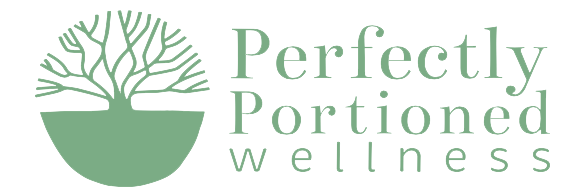As we approach 2030, the number of menopausal and postmenopausal women worldwide is set to reach an astounding 1.2 billion, with 47 million women entering this stage each year. It’s time we shift our perspective and enhance our understanding and support for this significant life transition.
For many women in their late 40s or 50s, menopause marks the end of their reproductive years and the beginning of a new chapter. This natural transition brings about various physical, emotional, and hormonal changes that can be both challenging and empowering.
Are you prepared for what lies ahead? If you’re feeling uncertain, don’t worry. This comprehensive guide is here to help you navigate menopause with clarity and confidence.
At PPW, we are dedicated to providing education, menopause treatment options, and empowering resources to support you throughout your journey. Let’s embrace this new phase together with knowledge and strength.
When does menopause start?
It’s official when you haven’t had a period in a whole year, which typically happens around age 51, but it can be a party of one starting in your late 40s or lasting into your early 60s. There’s no strict bouncer at the door. Genetics, health, and lifestyle can all play a role in when your period decides to peace out.
Perimenopause is like the pre-party phase. Your body is slowly winding down production of estrogen, and progesterone, the hormones that ran the period show. We also can’t leave out testosterone. It begins to decline as well, affecting our muscle mass, energy and libido.
This can start 8 to 10 years before menopause, bringing on hot flashes, irregular periods, and other fun symptoms. But hey, at least you know what’s coming!
How long does menopause last?
Menopause itself is a single point in time, defined as having no menstrual period for 12 consecutive months. It’s not a phase that lasts for a certain amount of time.
However, the perimenopause transition that leads up to menopause can last for several years. Here’s a breakdown of the timeline:
- Perimenopause: This is the phase where your body starts winding down hormone production, leading to irregular periods and other symptoms. It typically begins 8-10 years before menopause, but it can vary.
- Menopause: This is the point in time when you haven’t had a period for 12 months in a row. The average age for menopause is 51, but it can occur anywhere from your late 40s to your early 60s.
- Postmenopause: This is the phase that follows menopause and lasts for the rest of your life. During this time, you will no longer experience periods and your risk of certain health conditions, like osteoporosis, may increase.
What are the signs of coming to the end of menopause?
You might experience:
- Reduced menopausal symptoms like hot flashes and irregular periods
- More predictable periods (if still occurring)
- No periods for a full year (the official sign of menopause)
What are the best supplements for managing menopause symptoms?
While there are many supplements marketed towards managing menopause symptoms, the evidence for their effectiveness varies. Most supplements are over-hyped and we recommend targeted supplementation to help with specific symptoms.
At PPW, we are dedicated to providing education, menopause treatment options, and empowering resources to support you throughout your journey.
Is bleeding after menopause normal?
No, bleeding after menopause is not normal. Menopause is defined as having no menstrual period for 12 consecutive months. So, any bleeding that occurs after that point is considered abnormal and needs to be checked out by a doctor.
Can menopause cause joint pain?
Yes, menopause can cause joint pain. In fact, up to 50% of women experience some degree of joint pain during menopause and perimenopause. As estrogen levels decline during menopause, your joints may become stiffer and more prone to pain and inflammation. Menopause also increases your risk of osteoporosis, a condition that weakens bones and makes them more susceptible to fractures.
Does menopause make you feel tired?
Absolutely, menopause can make you feel tired. Fatigue is a very common symptom experienced by many women during perimenopause and menopause itself. Declining estrogen and progesterone levels during menopause can disrupt your sleep cycle, leading to fatigue and daytime tiredness. Estrogen plays a role in regulating sleep, and its decrease can cause sleep disturbances like insomnia or frequent awakenings throughout the night.
I realize I am in perimenopause, what are my next steps?
In general, we recommend focusing on your perimenopause to post-menopausal roadmap (peri to post hormone solution).
At PPW, we build up your foundations, nutrition, minerals and targeted supplementations. Then when you are ready and able to bring in HRT. It requires a multi-pronged approach and with the right strategy can help you thrive. Afterall, you could spend ⅓ of your life in postmenopause and we want to keep you out of a nursing home, help you stay active and increase your lifespan.
Women report feeling more confident and know themselves better than before. Don’t let (peri)menopause hold you back.
If you are looking for accountability, support, answers and clarity on your next steps, apply to join our programs here. We have helped hundreds of women thrive during this time.
We help peri to post-menopausal women get their energy, body and mind back without the use of expensive supplements, cumbersome protocols, or restrictive dieting so they can step into their fullest potential and most importantly, feel like themselves again.
Need more help? At PPW, we are dedicated to providing education, menopause treatment options, and empowering resources to support you throughout your journey.


